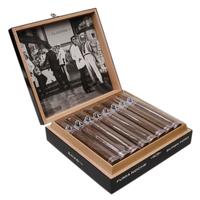
An interesting Steven Pinker talk:
:
Part 1
:
http://www.youtube.com/watch?v=E3yRVAw6nWU
:
Part 2
:
http://www.youtube.com/watch?v=yyNmGHpL11Q
:
:
Bloody - an epithet difficult to define, and used in a multitude of vague and varying senses. Most frequently, however, as it falls with wearisome reiteration every two or three seconds from the mouths of London roughs of the lowest type, no special meaning, much less a sanguinary one, can be attached to its use. In such a case it forms a convenient intensitive, sufficiently important as regards sound to satisfy those whose lack of language causes them to fall back upon a frequent use of words of this type.
(Farmer and Henley, "A dictionary of slang and colloquial English", 1905)
"Profanity is the linguistic crutch of an inarticulate motherfucker."
The reaction to curses/swears/profanity is largely based on the individual. Some believe that they should never be uttered, while others think they are acceptable under certain circumstances. There are also those that believe that they're nothing more than phonemes and that selecting some combinations as offensive and others as inoffensive is completely ridiculous.
A fine example of cursing being used as a means of discouraging elitism, former Australian prime minister Paul Keating yelled at late Labor politician Jim McClelland: ''Just because you swallowed a fucking dictionary when you were about 15 doesn't give you the right to pour a bucket of shit over the rest of us.''
In 2009, a study published in NeuroReport confirmed what we've known intuitively: swearing helps relieve pain.
Led by psychologist Richard Stephens at Britain's Keele University, it showed that university students who repeated an expletive of their choice were able to keep their hands immersed in icy water for 40 seconds longer than those who were only permitted to chant a neutral word. (Expletives are thought to emanate from evolutionary ''ancient structures'' deep in the right side of the brain.)

In order to understand profanity’s role in language it is essential to, first, analyze the origins of profanity’s conception. Linguists determine the word ‘profane’ comes originally from the Latin word ‘pro fano’, meaning, ‘outside the temple’ (Houghton Mifflin Company). The conceptual origins of the word ‘profane’ relate back to blasphemous acts, sacrilege, or any general item not anointed by the church (Houghton Mifflin).
The ‘profane’ came to represent any speech or symbol related to a subject deemed immoral, or contemptuous towards God, and this language was banned from use within temples. Swear, curse, and cuss are synonymous terms used in relation to profane speech referencing oaths made in vain or irreverence of God, the invoking of misfortune upon someone, or graphic descriptions of sexual or excretory organs or activities (Merriam-Webster).
Predating documentation, one of the oldest and most controversial profane expressions, originally referring to copulation, can be represented with the characters ‘F#$%’, ‘F ***’, or ‘F-ck’, and is still comprehensible, due to the profanity’s infamy. Though theories on how the ‘F’ word came to be conceived are only speculative, linguists presume the word to originate from early Germanic usage (Anderson).
The ‘F’ word first appeared in print in the 1475 poem titled Flen Flyys, the poem’s profane passage reads “They are not in heaven because they fuck wives of Ely,” written in a coded mixture of Latin and English because of the controversial content . Since then, in spite of condemnation from usage in established church and media, the obscenity has evolved to possess significant grammatical and linguistic versatility.
"The line between decency and indecency is an ever-shifting one and merits unremitting investigation."
(Allen Walker Read, 1935)
The word "bugger" for instance, originally meant a Bulgarian heretic, but later implied 'one addicted to unnatural vice.'
“Go, get thee gone thou frantic ass, to the devil, and be buggered!”
During an especially dramatic scene in the 2012 box-office smash The Avengers, Tom Hiddleston’s Loki, imprisoned and irascible, lashes out at Black Widow (Scarlett Johansson), ultimately referring to her as a “mewling quim.” If you recoiled at that moment—or, for that matter, had the faintest idea what was going on—then you should be commended for your solid working knowledge of outdated British profanity. The insult—which would have drawn audible gasps and possible bouts of fainting in mid-19th-century London theaters had Marvel Comics and the requisite movie projection technology been around at that time—amounts to “whimpering vagina.”
The fact is that profanity isn't a question of subject matter. It works by a kind of contagious magic, in the phrase that Sir James Fraser used in The Golden Bough -- the reference pollutes the word, and the word profanes everything else it comes in contact with, even when it has nothing to do with the original meaning. That's the principle that children exploit when they take a naughty pleasure in pronouncing shamPOO. And that's why our sense of propriety can be satisfied by the simple expedient of bleeping out part of the word or substituting an asterisk for its vowel. Swear words are like magic spells -- they lose their power if every syllable isn't enunciated just so.
In fact profanity is our first lesson in linguistic transgression, which we master even before we understand what it means to lie. That's why it's always a little weird to hear foreigners cursing in English, even if they speak the language fluently. You know that nobody ever washed their mouths out with soap for saying them.
So the prudes and the profaners are locked into an eternal co-dependence. Swearing has always flourished most luxuriantly in ages when it could count on a strain of middle-class delicacy to work against. In Henry IV Part I, Hotspur rebukes his wife for using the dainty shop-keeper's oath "in sooth" -- "You swear like a conmfit-maker's wife… Swear me, Kate, like a lady as thou art, a good mouth-filling oath."
"The notion that there exist certain sequences of sounds that if heard, will make people feel very unpleasant is not only ridiculous, but also a very primitive notion." (John McWhorter)
Dr. McWhorter reminds us that the assignment of words to their object is arbitrary;
there is not a sound, or sequence of sounds that is by its very nature profane.
http://www.youtube.com/watch?v=uGR8pN0t_fU








